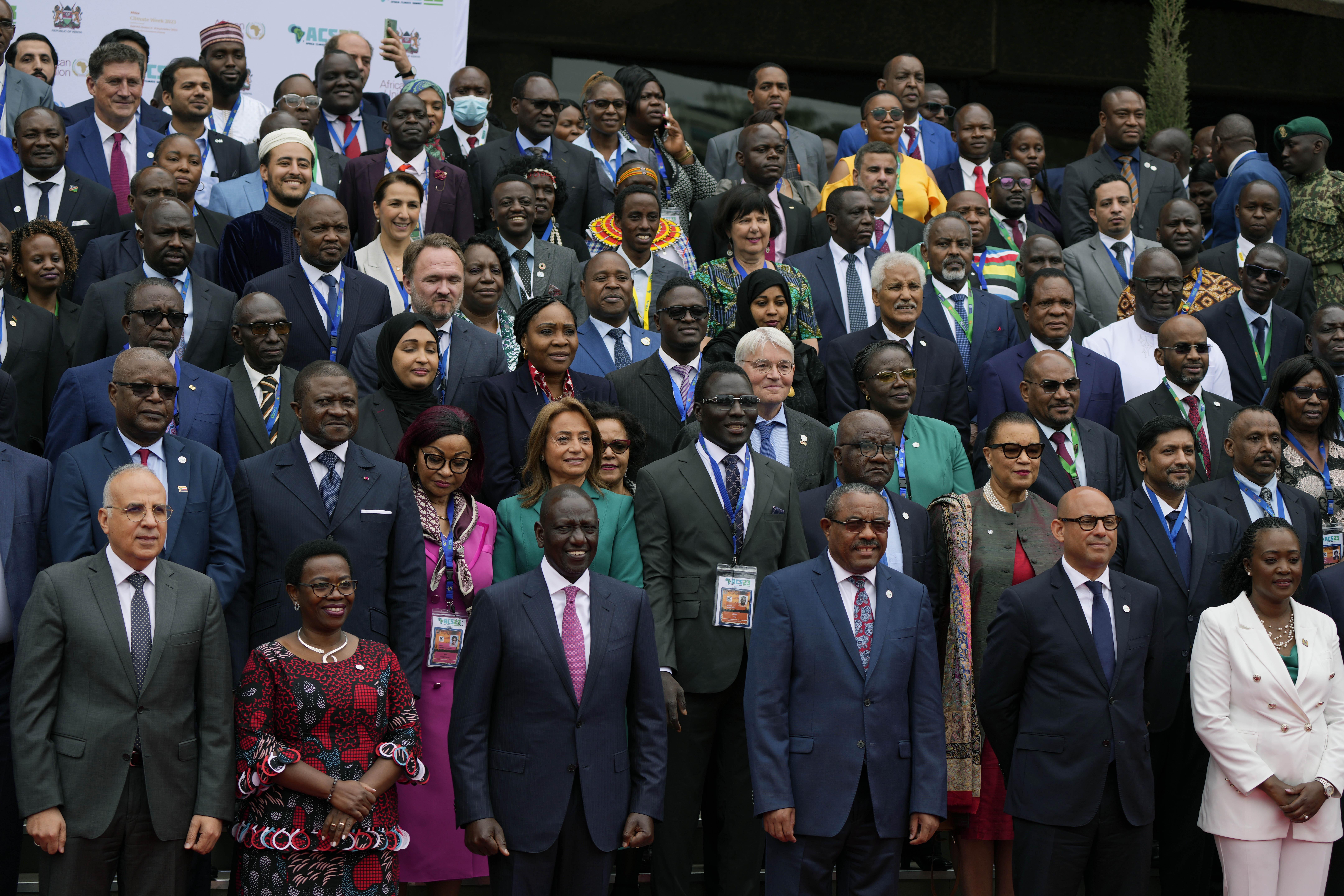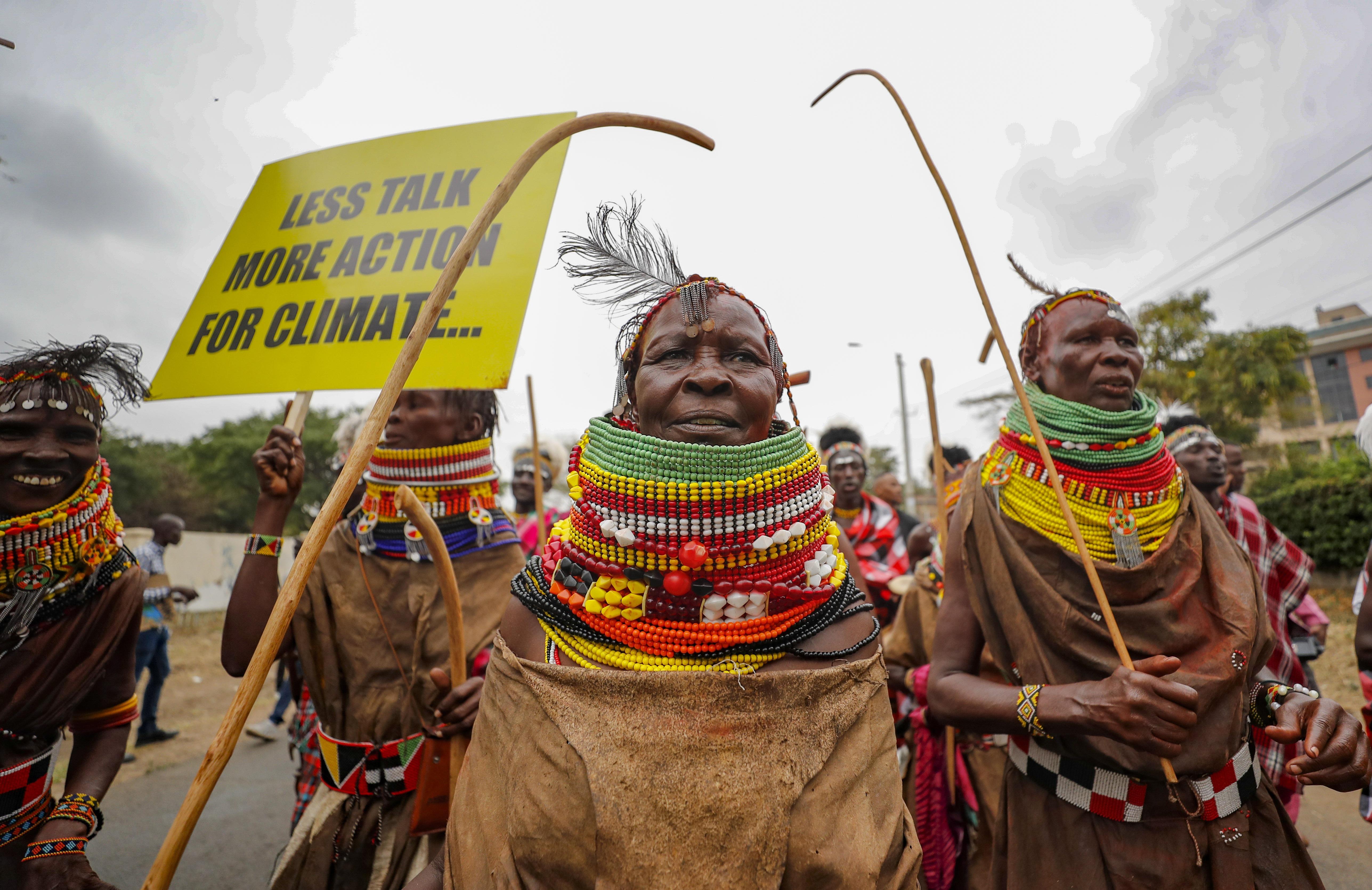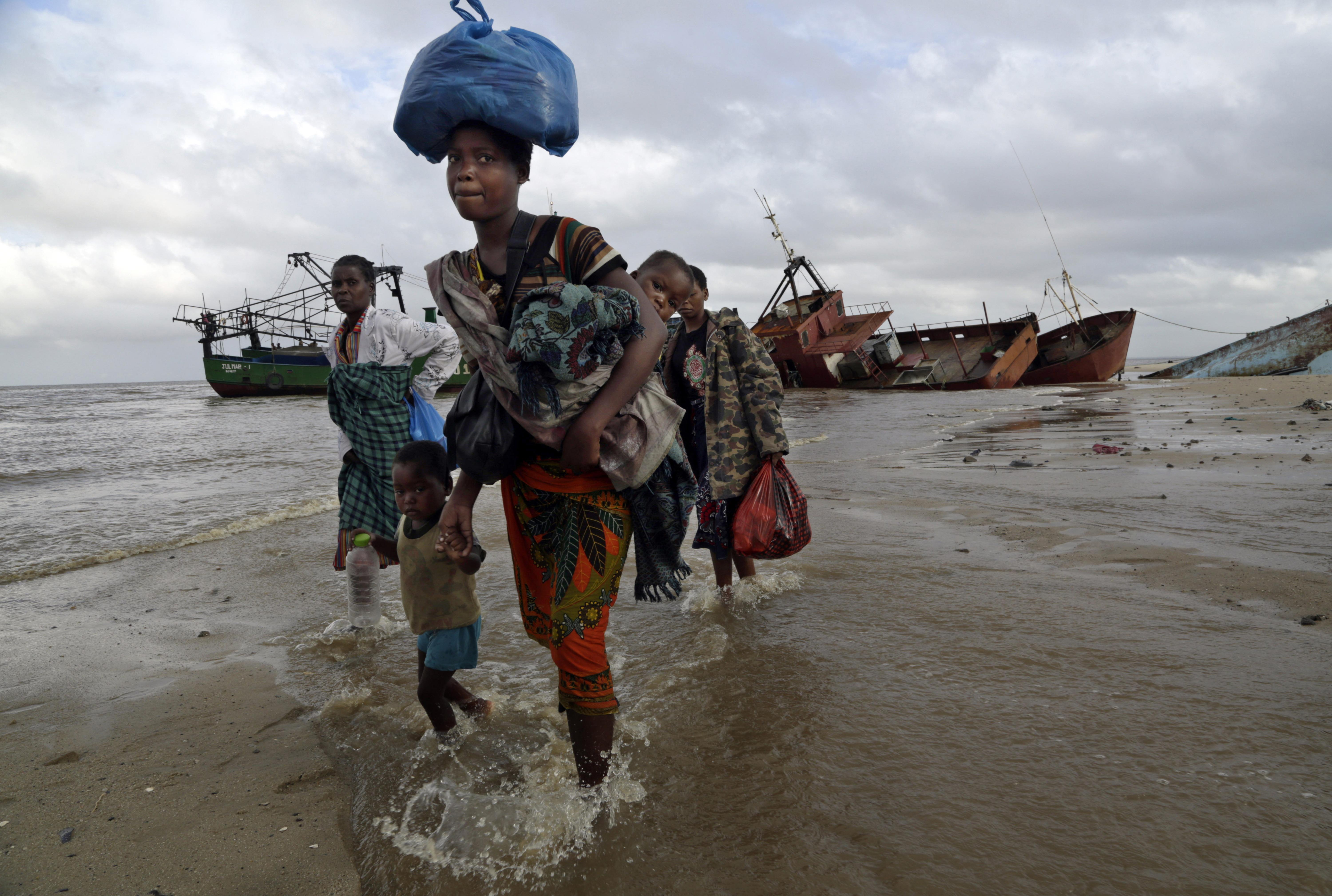 Head of states and delegates pose for a group photo, during the official opening of the Africa Climate Summit at the Kenyatta International Convention Centre in Nairobi, Kenya, Sept 4, 2023. (PHOTO / AP)
Head of states and delegates pose for a group photo, during the official opening of the Africa Climate Summit at the Kenyatta International Convention Centre in Nairobi, Kenya, Sept 4, 2023. (PHOTO / AP)
NAIROBI - African heads of state and government on Tuesday rallied the continent to intensify climate mitigation efforts as they pushed for increased financing from high contributors of emissions, and a pact that seeks to address forced migration linked to climate emergencies was signed.
The leaders, who were speaking at the Africa Climate Summit in Nairobi, Kenya's capital, during the high-level session, said the continent must intensify climate action even though it only contributes 4 percent to global warming.
Azali Assoumani, the chairman of the African Union and president of Comoros, said countries in the continent should implement their climate ambitions contained in various local and regional strategies and policies.
ALSO READ: COP28 president: World losing race to meet climate goals
"This forum comes at the right time so that we develop the right strategies, share responsibilities and solutions. As Africa, we must profit from this event and define collaborations for concrete climate action," he said.
He called on African countries to invest in modern technologies that would help to warn people of impending adverse climate events as part of mitigation measures.
 A delegate walk in front of a mural outside the Kenyatta International Convention Centre (KICC) in Nairobi, Kenya, Sept 5, 2023, during the Africa Climate Summit. (PHOTO / AP)
A delegate walk in front of a mural outside the Kenyatta International Convention Centre (KICC) in Nairobi, Kenya, Sept 5, 2023, during the Africa Climate Summit. (PHOTO / AP)
William Ruto, Kenya's president and chairman of the African Union's Committee of 10 African Leaders on Climate Change, said the summit provides Africa with a moment to generate solutions to global challenges.
Climate change is causing economic and social distress in Africa as about 18m people were affected by drought in the Horn of Africa, said an African Union leader
"Climate change is the greatest challenge to the well-being of humanity and the existence of life on earth. Only our coordinated action can stop greenhouse gases and lower their concentration in the atmosphere to reduce global warming," he said.
Ruto asked African leaders to prioritize climate action by mainstreaming it in their agendas for shared prosperity.
Tackling climate change, according to him, will produce solutions to manage the crisis that has currently gripped Africa.
"As Africa, we have plenty of resources to provide solutions. Our untapped renewable energy potential and the youth along with abundant resources like minerals and arable land confer Africa a chance to become a green industrial hub," he said.
ALSO READ: Report: Africa endures more severe warming than elsewhere
The Kenyan leader observed that Africa has the highest investment potential but it is only limited by high interest rates for development capital.
"Nine countries are in debt distress, 13 classified as high risk and another 17 as moderate risk. Africa is not asking to be favored but for a fair international financial system, that treats everyone equally so that it can also support its mitigation efforts," he said.
 Protesters march to demand action on climate change, in the streets, in Nairobi, Kenya, Sept 4, 2023 as the Africa Climate Summit begins. (PHOTO / AP)
Protesters march to demand action on climate change, in the streets, in Nairobi, Kenya, Sept 4, 2023 as the Africa Climate Summit begins. (PHOTO / AP)
Egyptian Prime Minister Mostafa Madbouly said access to finance is the biggest challenge African countries face as they move to solve climate change effects, calling for a new kind of climate financing that does not take development financing away from countries.
"The West should turn African debts into financing climate. Africa needs $100 million for climate financing but this is money it cannot raise as it pays its debt," he said.
Moussa Faki Mahamat, the African Union Commission (AUC) chairperson, observed that if climate change is not stopped, it will put unbearable pressure on the continent's food systems.
Faki said climate change is causing economic and social distress in Africa as about 18 million people were affected by drought in the Horn of Africa, while cyclone Freddy killed 700 people in Malawi, Mozambique, and Madagascar.
He said Africa needs 160 billion dollars to develop various infrastructures and make them resilient to the threats from climate change. "This summit affords Africa to translate climate challenges into opportunities and prepare for COP28," he said.
 Displaced families arrive after being rescued by boat from a flooded area of Buzi district, 200 kilometers outside Beira, Mozambique, March 23, 2019. (PHOTO / AP)
Displaced families arrive after being rescued by boat from a flooded area of Buzi district, 200 kilometers outside Beira, Mozambique, March 23, 2019. (PHOTO / AP)
Forced migration
On the sidelines of the Africa Climate Summit, forty-eight African countries on Monday signed a continental pact that seeks to address forced migration linked to climate emergencies ravaging the continent.
Soipan Tuya, Kenya's cabinet secretary for environment, climate change, and forestry, said that by endorsing the Kampala declaration, African states reaffirmed their commitment to providing a safe haven to the rising toll of climate refugees in the continent
Dubbed the Kampala declaration on migration, environment, and climate change, the continental pact that was conceived in July 2022 seeks to address the nexus between human mobility and the negative impacts of global warming in Africa.
Soipan Tuya, Kenya's cabinet secretary for environment, climate change, and forestry, said that by endorsing the Kampala declaration, African states reaffirmed their commitment to providing a safe haven to the rising toll of climate refugees in the continent.
"As the climate crisis escalates, it is leaving behind a huge population of displaced persons who require all forms of assistance. The Kampala declaration is therefore a call to attend to the needs of victims of climate emergencies," Tuya said.
The Kampala declaration that was originally endorsed by 14 African states in July 2022 during a meeting in the Ugandan capital is a home-grown initiative that aims to find a lasting solution to climate-induced forced mobility, said Beatrice Atim Anywar, the Ugandan minister of state for environment.
ALSO READ: UN report: Invasive species costs global economy $423b per year
According to Anywar, climatic shocks have escalated the displacement of civilians in the Horn of Africa and Sahel region, to the detriment of stability, cohesion, and long-term growth.
Amy Pope, the director general-elect of the International Organization for Migration (IOM), a specialized UN migration agency, noted that the recurrence of calamities linked to climate change alongside poverty and conflict has worsened the displacement of civilians in Africa.
Pope stressed that governments and bilateral partners should prioritize adaptation financing to boost the resilience of communities living in climate hotspots including the Horn of Africa.
Mohamed Abdiker, IOM regional director for East and Horn of Africa, said the Kampala declaration provides a platform for African nations to tackle climate-induced migration and realize sustainability goals.


